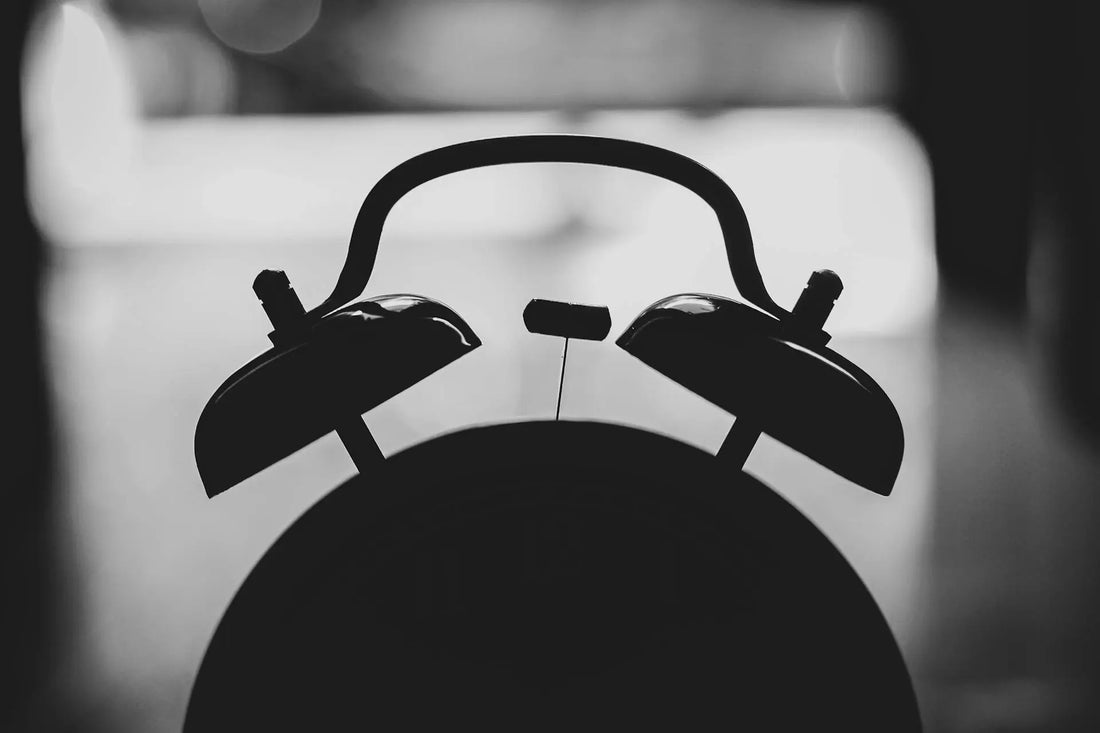
How to become a morning person?
Whether it's back-to-school time or early morning work meetings, most schedules seem to accommodate morning people.
If you're wondering how to become a morning person , there are several factors to consider. Being a night owl is, to some extent, innate, due to a phenomenon called chronotype . That said, there are some tactics you can use to feel more comfortable in the morning.
We'll explain the science behind chronotypes and share tips for becoming a more morning person .
Tips for Becoming a Morning Person
People change their sleep schedules for a variety of reasons. Whether it's to accommodate a new work or school schedule, to help out their family, or simply because they feel like it, following these tips can be beneficial.
Maintain good sleep hygiene
Before changing your sleep schedule, it's helpful to implement healthy practices, called sleep hygiene . This includes:
- Exercise regularly
- Avoid caffeine, nicotine and alcohol, especially before bedtime
- Avoid afternoon and evening naps
- Find relaxing activities before bed
Sleep hygiene also involves making your bedroom conducive to sleep: a dark, quiet and cool environment. Use blackout curtains , invest in quality bedding and declutter the room.
Establish a nighttime routine
A bedtime routine signals to your brain that it’s time to sleep. This signal is most effective if you do the same activities in the same order every night before bed. Dim the lights and avoid screens (smartphone, TV, e-reader). Focus on quiet, relaxing activities like taking a bath, reading, journaling, listening to relaxing music, stretching, or meditating.
Maintain a consistent sleep schedule
Whether you're a morning or evening person, a consistent sleep schedule makes it easier to get at least seven hours of sleep each night and helps you feel more rested during the day. Studies have shown that sleeping in on the weekends can disrupt your circadian rhythm , so it's best to set a consistent bedtime and wake-up time and stick to it every day.

Gradually bring forward bedtime
Once you've established a regular sleep schedule, start moving your bedtime forward in 15-minute increments . Similarly, set your alarm to wake you up 15 minutes earlier . Make these adjustments gradually, taking at least a few days between each change.
Tips for Becoming a Morning Person
People adjust their sleep schedules for a variety of reasons. Whether it's to accommodate a new work or school schedule, to help out their family, or simply because they feel like it, here are some helpful tips:
Adopt a morning routine
Incorporating enjoyable, energizing activities into your morning routine can help motivate you to get out of bed. This could include enjoying your favorite beverage or spending a few minutes outside with your pet. Using an alarm with melodic sounds can also help reduce sleep inertia, that groggy feeling when you wake up. Also consider making use of natural light by leaving the curtains open or investing in a dawn simulator . Ideally, those who get enough sleep don’t even need an alarm clock.
Explore our alarm clock collections and find the one that suits you.

Exercise regularly
Regular exercise has been shown to improve sleep. Studies show that morning and evening exercise have a significant impact on circadian rhythms, especially in night owls. Light also plays a crucial role in helping to advance the sleep cycle by about 30 minutes.
Using light strategically
Light has a powerful awakening effect on the circadian rhythm , especially for night owls. Exposing yourself to natural light early in the morning can help advance your body clock. If you can't go outside, sit near a window or use a light therapy lamp .
Bring forward meal times
Your appetite is tied to your circadian rhythm. To help your body adjust to a more morning routine, try eating earlier . This can help sync your internal clock with a morning person's schedule.
Beware of coffee
Caffeine can affect your sleep up to six hours before bedtime. Limit your intake to 400 milligrams per day and avoid drinking it in the late afternoon. Alcohol can also disrupt sleep, so it's best to drink it in moderation and avoid it before bed.
Why are some people morning people and others not?
Our sleep-wake cycles are dictated by our circadian rhythm, an internal clock that regulates our energy levels throughout the day . This clock typically follows the solar cycle, but the exact timing can vary from person to person, which is called chronotype.
Morning people, or early risers, have an early chronotype and feel their best earlier in the day. Night owls, on the other hand, have a late chronotype and feel more awake and motivated at night. This variability is reflected at the physiological level, with differences in the excitability of brain pathways between morning and evening.
Neither chronotype is inherently better than the other, but night owls may be at a disadvantage in a society that values morning activities, affecting their cognitive and physical performance.

Can you change your chronotype?
Your chronotype is mostly determined by genetics , but it can be influenced by age, environment, and activity level. For example, one study found that night owls were able to advance their sleep cycle by two hours with a few simple lifestyle changes. Participants didn’t reduce their total sleep time and reported feeling less depressed and stressed . Additionally, tests revealed that their reaction times and grip strength improved in the morning, typically their weakest time of day.
Your chronotype can also change with age, gender, and physical changes. One study found that women are more likely to be early risers from childhood through their 20s, but are more likely to become night owls after age 45. During pregnancy, women's chronotype tends to advance during the first and second trimesters, then returns to normal by the third trimester. A stroke can also change your chronotype.
Reliable sources
National Library of Medicine, Biotech Information: The National Center for Biotechnology Information advances science and health by providing access to biomedical and genomic information.






